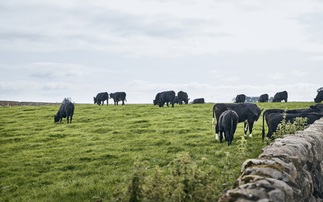S&P Platts raises alarm over how the world's top rose-producing countries are exposed to worsening extreme heat and droughts
Roses are red, violets are blue, temperatures are rising, and flower supply chains are screwed.
This morning, S&P Platts has raised the alarm about the threat extreme heat caused by climate change poses to global rose production, as temperatures mount in top producing countries.
A briefing published by the analyst's ESG intelligence arm, Sustainable1, explores the physical risks resulting from extreme heat in Ecuador and Colombia, which produce more roses for export than any other countries.
The data notes that physical risks in both countries are expected to roughly double by the 2050s under as business-as-usual scenarios, posing a threat to rose production industries.
Under current trends, Colombia is expected to see the number of extreme heat days increase from 69 today to 155 by the 2050s, while Ecuador would see the number of extreme heat days increase from 66 today to 127 by mid-century. By the 2090s, extreme heat days could comprise two thirds of the year in both countries, impacting 239 days in Ecuador and 276 in Colombia each year.
While Colombia and Ecuador currently experience one month of drought each year, drought periods are projected to extend to 2.4 months and 1.4 months, respectively, in the 2050s and 4.7 months and 2.2 months, respectively, in the 2090s, S&P Platts said.
Steve Bullock, managing director and global head of research and methodology of S&P Global Sustainable1, said the findings highlighted the ways climate impacts are already effecting local economies and livelihoods around the world.
"S&P Global Sustainable1 physical risk data in Ecuador and Columbia - the largest producers of roses in the world - are just two small examples of the increasingly volatile climate conditions humanity is facing in nearly every corner of the globe in the coming decades," he said. "This reinforces that it is vital for companies, financials, and municipalities alike, to look to evidence-based insights and advanced analytics to support adaptation strategies to mitigate the exposure to these risks before they are realised."
Don't forget to get your entries in for this year's UK Green Business Awards ahead of the March 1st deadline.










